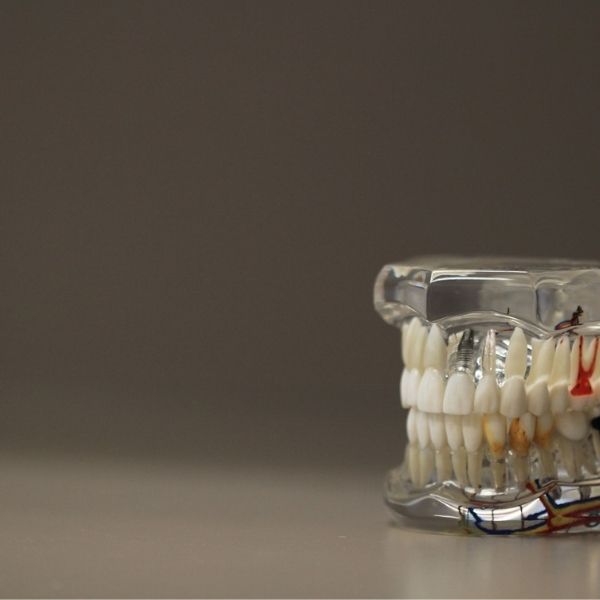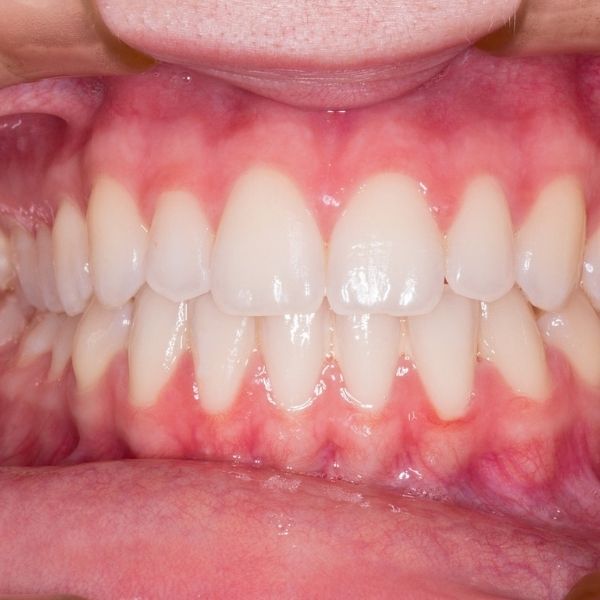When it comes to oral health, recognizing wisdom teeth symptoms can be crucial for maintaining your well-being. Wisdom teeth, or third molars, typically emerge in late adolescence or early adulthood. While some people experience no issues with their wisdom teeth, others may face significant challenges if there isn’t enough room in the mouth for these teeth to grow properly. If wisdom teeth become impacted or grow at awkward angles, they can lead to pain, infections, and other dental complications. Understanding the wisdom teeth symptoms can help you determine when it’s time to seek professional dental advice. Here are five key signs that your wisdom teeth may need to be removed.
1. Pain in the Back of Your Mouth
One of the most common wisdom teeth symptoms is pain in the back of your mouth, particularly near your molars. As your wisdom teeth attempt to break through the gums, they can cause discomfort or pressure. This pain may begin as a mild annoyance but can escalate into severe discomfort as the teeth continue to emerge.
The pain can radiate to nearby areas, causing discomfort in the jaw, ear, or head. If you find yourself experiencing persistent or worsening pain in the back of your mouth, it may be a sign that your wisdom teeth are impacted and need to be removed. Addressing this issue early can help prevent further complications and relieve the pain.
2. Swelling or Tenderness Around the Gums
Another significant wisdom teeth symptom to be aware of is swelling or tenderness around the gums, especially in the area where your wisdom teeth are trying to emerge. The swelling may be caused by the teeth pushing through the gums or by infection surrounding the partially erupted wisdom teeth.
This condition, known as pericoronitis, occurs when food particles and bacteria become trapped around the wisdom teeth, leading to inflammation and infection. Symptoms may include redness, swelling, and pain in the affected area. If you notice persistent swelling or tenderness in your gums, it’s essential to consult your dentist, as the removal of wisdom teeth may be necessary to prevent further infection.
3. Crowding of Other Teeth
Crowding of your other teeth is a telltale wisdom teeth symptom that can signal the need for extraction. As wisdom teeth push through, they can cause crowding in your mouth, especially if there isn’t enough room in your jaw for them. This crowding may lead to misalignment of your teeth, causing orthodontic issues.
If your wisdom teeth are growing at an angle or become impacted, they can exert pressure on the adjacent molars, shifting them out of alignment. This can undo the effects of previous orthodontic work, such as braces, making it essential to recognize the wisdom teeth symptoms of crowding early on. If you notice that your teeth are becoming misaligned or crowded, it may indicate that your wisdom teeth need to be removed before they cause further damage.
4. Frequent Infections or Cysts
Frequent infections or the presence of cysts around your wisdom teeth can be a serious wisdom teeth symptom that requires prompt attention. Impacted wisdom teeth are more susceptible to infections because they are challenging to clean properly, allowing bacteria and food particles to accumulate.
In some cases, cysts or fluid-filled sacs may form around the wisdom teeth, potentially damaging the surrounding teeth, gums, and even the jawbone. These cysts can also lead to the development of benign tumors, requiring more extensive treatment. If you experience recurrent infections or notice swelling and pus around your wisdom teeth, it is a strong indication that removal may be necessary.
5. Difficulty Opening Your Mouth or Jaw Stiffness
Experiencing stiffness or difficulty opening your mouth can also be a significant wisdom teeth symptom. Impacted wisdom teeth can lead to tension in the jaw, causing discomfort and making it hard to fully open your mouth. This stiffness can arise from the pressure that the wisdom teeth exert on nearby structures, including the jawbone and muscles.
In some cases, this stiffness can lead to pain in the temporomandibular joint (TMJ), which controls jaw movement. If you’re facing challenges with jaw mobility or persistent stiffness, it’s important to seek advice from your dentist. Recognizing this wisdom teeth symptom early on can help prevent complications and ensure proper treatment.
Understanding Wisdom Teeth Symptoms and Their Implications
While many people may not experience significant issues with their wisdom teeth, being aware of the wisdom teeth symptoms outlined above can help you identify potential problems. It’s important to note that these symptoms often indicate the presence of impacted wisdom teeth or other dental complications that require professional evaluation.
Many patients wonder if they need their wisdom teeth removed, and the answer often lies in recognizing these symptoms. If you notice any signs of pain, swelling, crowding, frequent infections, or difficulty opening your mouth, it’s crucial to consult your dentist. They can assess your situation and determine the best course of action.
Why You Shouldn’t Ignore Wisdom Teeth Symptoms
Ignoring the wisdom teeth symptoms can lead to more serious dental issues in the long run. Here’s why seeking treatment is important:
- Worsening Tooth Decay: Cavities associated with wisdom teeth don’t heal on their own. Left untreated, decay can progress and lead to more severe pain, possibly requiring root canals or extractions.
- Progression of Gum Disease: If left unaddressed, gum disease can worsen, leading to tooth loss and other health complications. Early detection of wisdom teeth symptoms can prevent these outcomes.
- Infection Spread: Infections around the wisdom teeth can spread to other areas, potentially leading to systemic health issues. Seeking timely treatment can prevent complications.
When to See a Dentist
If you’re experiencing any of the wisdom teeth symptoms mentioned above, it’s essential to schedule a dental appointment as soon as possible. Early intervention can help alleviate discomfort, prevent complications, and ensure the health of your mouth.
Your dentist will likely conduct an examination, which may include X-rays, to assess the position of your wisdom teeth and determine whether extraction is necessary. By addressing issues promptly, you can avoid unnecessary pain and complications associated with impacted wisdom teeth.
Preventive Measures for Wisdom Teeth Issues
To reduce the risk of developing wisdom teeth symptoms in the first place, consider implementing these preventive measures:
- Regular Dental Checkups: Regular visits to your dentist can help monitor the growth and development of your wisdom teeth, ensuring any issues are detected early.
- Good Oral Hygiene: Practicing good oral hygiene by brushing and flossing regularly can help keep your mouth healthy and reduce the risk of infections around your wisdom teeth.
- Awareness of Changes: Pay attention to any changes in your mouth, such as pain, swelling, or crowding. Reporting these changes to your dentist early can prevent more significant problems.
Recognizing Wisdom Teeth Symptoms Early
In conclusion, being aware of wisdom teeth symptoms is essential for maintaining your oral health. Pain, swelling, crowding, infections, and jaw stiffness are all signals that your wisdom teeth may be impacted or causing issues that require extraction. If you notice any of these signs, consult your dentist for an evaluation. Early intervention can help prevent further damage and maintain a healthy smile. By staying proactive and recognizing the importance of wisdom teeth symptoms, you can take control of your dental health and avoid complications in the future.





